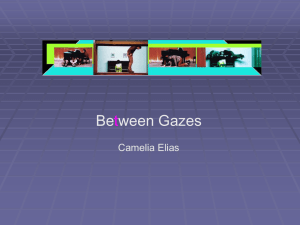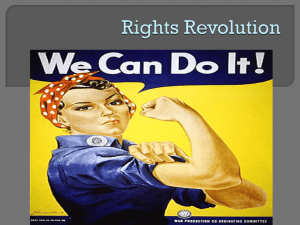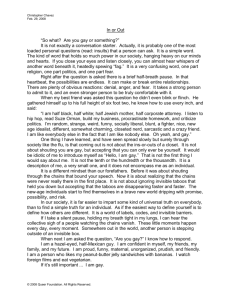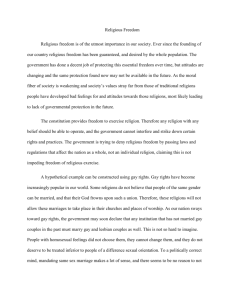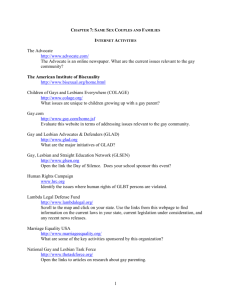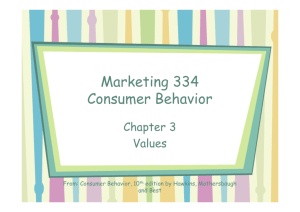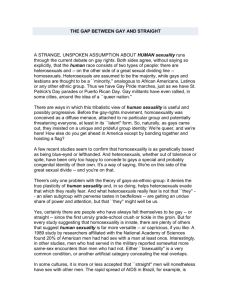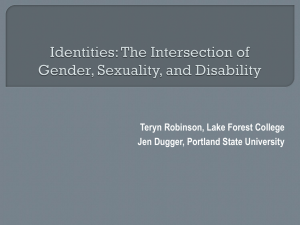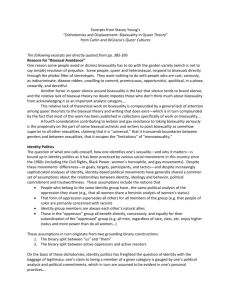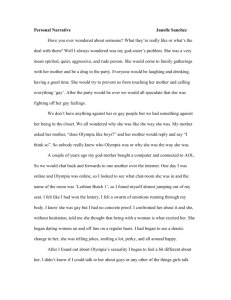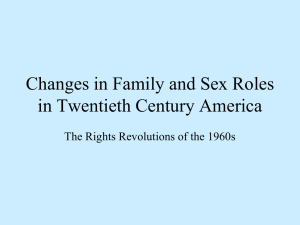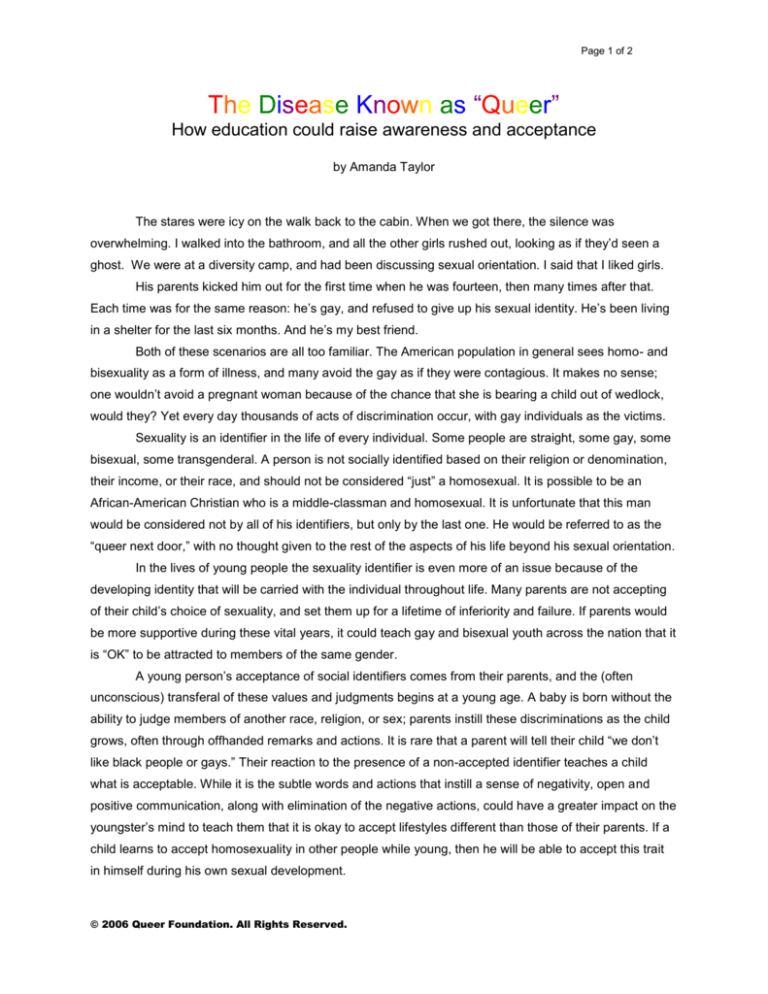
Page 1 of 2
The Disease Known as “Queer”
How education could raise awareness and acceptance
by Amanda Taylor
The stares were icy on the walk back to the cabin. When we got there, the silence was
overwhelming. I walked into the bathroom, and all the other girls rushed out, looking as if they’d seen a
ghost. We were at a diversity camp, and had been discussing sexual orientation. I said that I liked girls.
His parents kicked him out for the first time when he was fourteen, then many times after that.
Each time was for the same reason: he’s gay, and refused to give up his sexual identity. He’s been living
in a shelter for the last six months. And he’s my best friend.
Both of these scenarios are all too familiar. The American population in general sees homo- and
bisexuality as a form of illness, and many avoid the gay as if they were contagious. It makes no sense;
one wouldn’t avoid a pregnant woman because of the chance that she is bearing a child out of wedlock,
would they? Yet every day thousands of acts of discrimination occur, with gay individuals as the victims.
Sexuality is an identifier in the life of every individual. Some people are straight, some gay, some
bisexual, some transgenderal. A person is not socially identified based on their religion or denomination,
their income, or their race, and should not be considered “just” a homosexual. It is possible to be an
African-American Christian who is a middle-classman and homosexual. It is unfortunate that this man
would be considered not by all of his identifiers, but only by the last one. He would be referred to as the
“queer next door,” with no thought given to the rest of the aspects of his life beyond his sexual orientation.
In the lives of young people the sexuality identifier is even more of an issue because of the
developing identity that will be carried with the individual throughout life. Many parents are not accepting
of their child’s choice of sexuality, and set them up for a lifetime of inferiority and failure. If parents would
be more supportive during these vital years, it could teach gay and bisexual youth across the nation that it
is “OK” to be attracted to members of the same gender.
A young person’s acceptance of social identifiers comes from their parents, and the (often
unconscious) transferal of these values and judgments begins at a young age. A baby is born without the
ability to judge members of another race, religion, or sex; parents instill these discriminations as the child
grows, often through offhanded remarks and actions. It is rare that a parent will tell their child “we don’t
like black people or gays.” Their reaction to the presence of a non-accepted identifier teaches a child
what is acceptable. While it is the subtle words and actions that instill a sense of negativity, open and
positive communication, along with elimination of the negative actions, could have a greater impact on the
youngster’s mind to teach them that it is okay to accept lifestyles different than those of their parents. If a
child learns to accept homosexuality in other people while young, then he will be able to accept this trait
in himself during his own sexual development.
© 2006 Queer Foundation. All Rights Reserved.
Page 2 of 2
Many parents know that there are gays out there, but still find it detrimental to discover that their
own child is gay. They feel that they have failed as a parent. They feel that their child has failed as a
member of a “normal” society. They are concerned that their child has broken the “chain” of biological
reproduction, depriving them of the chance to have grandchildren, and discontinuing the family name
(especially in the case of gay men). While understandable, none of these thoughts is rational. A child who
grows up to be gay can also be a functional member of society, and there are ways for gay couples to
adopt children, thus providing a way to continue the family name, and giving the gay couple’s parents with
grandchildren.
There are organizations out there that are committed to the protection and support of homo- and
bisexuality, but few extend their resources. It would have an amazing impact on society’s views if those
organizations could simply integrate, and demonstrate that a person’s sexuality is a part of every
individual’s life, not the entirety of it.
© 2006 Queer Foundation. All Rights Reserved.

